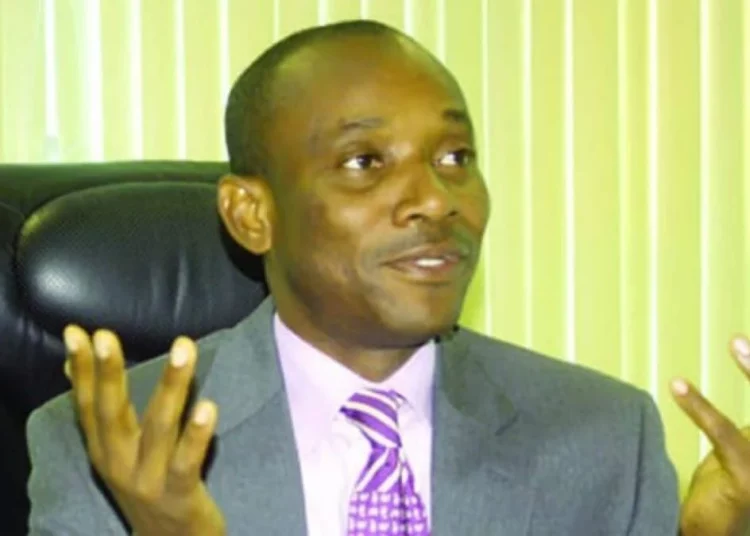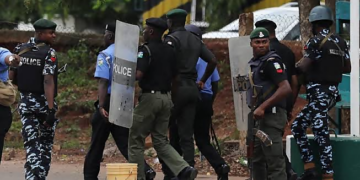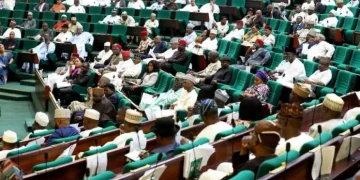Amid ongoing debate over electricity tariff determination in Enugu State, a former Chairman of the Nigerian Electricity Regulatory Commission (NERC), Dr Sam Amadi, has thrown his weight behind the tariff review process implemented by the Enugu Electricity Regulatory Commission (EERC), urging stakeholders to focus on engaging with the actual cost figures provided by the company.
This is as Electricity Distribution Companies (Discos), have kicked against the Enugu State Electricity Regulatory Commission’s (EERC) plan to reduce the Band A electricity tariff to N160/kWh without proper coordination with the Nigerian Electricity Regulatory Commission (NERC) or other market stakeholders.
Recall that the EERC announced a slash of electricity tariffs for Band A customers from N209/kWh to N160/kWh, effective August 1, 2025.
Speaking exclusively with LEADERSHIP on Thursday, Dr Amadi stated that EERC was operating within its regulatory expectations by adopting the tariffs assigned after reviewing the real costs for the state.
“There is nothing that they are doing out of context. They are doing their job the proper way which is to ask the Disco to send their cost and they reviewed the cost and gave them the tariff appropriate to their cost,” Dr Amadi explained.
He noted that while NERC itself fixed a separate generation cost component as part of the broader tariff framework, it is the responsibility of the Distribution Company (Disco) like EEDC to ensure only real, verifiable costs—including those for meter provision and installation— for Enugu state are reflected in their submissions.
Amadi emphasised that claims of under-tariffing are only concerning if the EERC’s declared tariff does not mirror the DisCo actual costs. He argued that being lower than the NERC-established figure is not inherently problematic, since NERC bases its calculations on government policy directives and broader, globalised cost assumptions.
“Let the Disco (EEDC) show that the tariff they gave them is not reflecting their real cost. If that is the case, then there is a problem, but if the fact that it is lower than what NERC gave, that is not an issue, because NERC builds their own cost on the policy of the government and on the globalised cost,” said Amadi.
Focusing on Enugu DisCo specifically, Amadi revealed that authorities requested a detailed breakdown on the true cost of serving the city—including meters, installations, and other infrastructure. The resulting tariff, determined after reviewing these costs, turned out to be lower than what the company initially claimed, a development he said demonstrates compliance with regulatory procedure.
According to Dr Amadi, “The Disco did what it was supposed to do. So, for me, the stakeholder should engage here with the Disco.”
Meanwhile, the DisCos who spoke through the Association of Nigerian Electricity Distributors (ANED) led by the managing director/CEO, Barr. Sunday Oduntan, warned that this “unilateral” tariff cut risks destabilising the Nigerian Electricity Supply Industry (NESI) and deepening the existing liquidity crisis.
Oduntan, described the decision to slash Band A tariffs in Enugu State to N160/kWh without the “adequate coordination with NERC and or other market participants” as “a significant concern for the stability and liquidity of the NESI.”
He also stressed that the Nigerian power market, in the short term, remained largely centrally coordinated, especially for bulk energy purchases, transmission, and market settlements involving Generation Companies (GenCos) and the Nigerian Bulk Electricity Trading Company (NBET).
“The sudden tariff slash by EERC, outside of central coordination, raises significant concerns for the stability and liquidity of NESI,” Oduntan stated on Thursday morning.
“Discos in other states are already under pressure, and some customers have declared they will withhold payments until tariffs are lowered,” he added.
While acknowledging the desire for more affordable power, Oduntan emphasised that current tariffs were cost-reflective, driven by Nigeria’s economic realities and the high operating costs:
“It is not our intention to make life difficult for our loyal customers. We’ve been working with the federal government to provide a stable power supply. However, the cost reflective tariff reflects the economic realities we face.”
ANED highlighted that Enugu’s approach relies on the assumption of federal subsidies, but cautioned subsidies must be transparent, fully funded, and timely to avoid cash flow disruptions.
“We stress that subsidies must be transparently structured and promptly funded. Undue delays create severe liquidity challenges across the value chain,” Oduntan warned.
He reiterated the federal government’s position, echoed by the minister of Power, Adebayo Adelabu, that any state tariff cuts must be accompanied by accountable subsidy payments:
“States slashing tariffs must be ready to pay subsidies and bear financial responsibility for these decisions.”
Discos voiced concern that such uncoordinated state-level tariff reductions risk shortfalls in Disco remittances to the market, threatening Generation Companies (GenCos) and upstream suppliers with further financial strain. They warned that the federal government’s subsidy budget is limited and further tariff cuts could exacerbate subsidy burdens.
“Most states cannot afford meaningful subsidies given rising governance costs and the harsh environment. This increases the imperative for stronger collaboration and consistent market-driven policies,” Oduntan added.
To safeguard investor confidence and service delivery, ANED called for stronger coordination among the Ministry of Power, State Regulators, and NERC for uniform policies and tariff designs; a clear, transparent, targeted, and fully funded subsidy framework; and timely subsidy payments to improve liquidity and enable prompt market settlements.
Oduntan also cautioned that while everyone supports affordable electricity, tariff adjustments must preserve market financial health, encourage investment, and avoid undoing progress toward reliable power for Nigerians.
“We remain committed to advocating for a financially sustainable and customer-responsive electricity sector in Nigeria,” he affirmed.
However, Discos see this move as a destabilising precedent lacking the necessary market-wide coordination. The warning from ANED signals heightened tensions in Nigeria’s evolving, decentralised electricity market.











